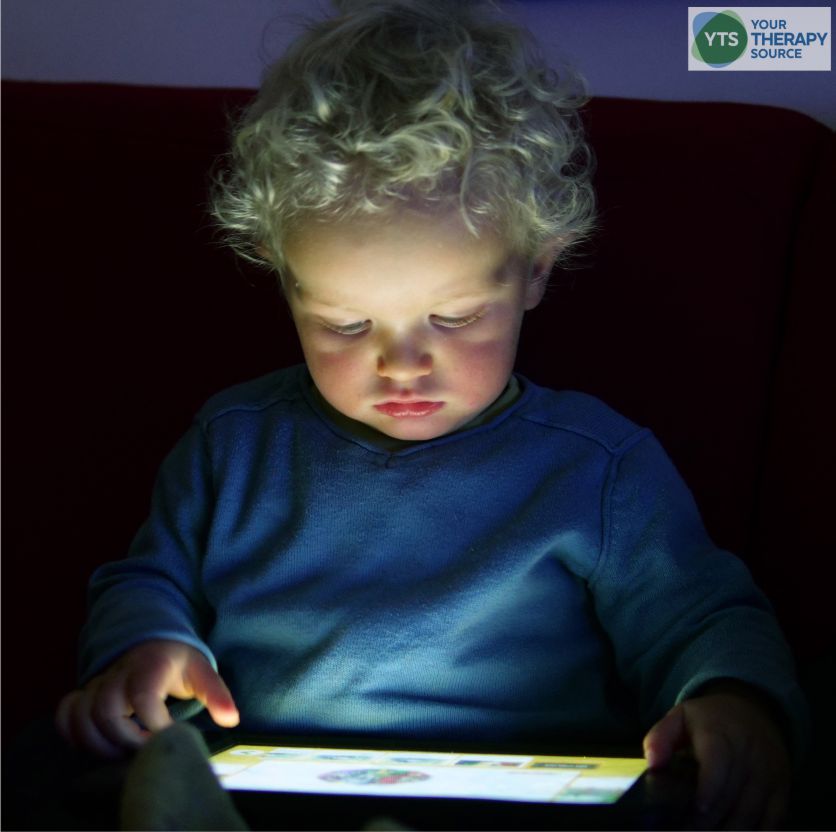Excessive Screen Time for Children – What does the research say?

What does the research say about excessive screen time for children? Yesterday, we reported the survey results on screen time and young children. The
As parents we may avoid this topic. Handing our children screens makes parenting so much easier. Sometimes we justify it by providing educational apps or educational television shows, but the bottom line is more research indicates that excessive screen time is detrimental to the developing brain.
The Methodology of the Recent Study on Excessive Screen Time and Children
The longitudinal study was to determine the directional association between screen time and child development in a population of 2441 mothers and children (47.9% boys) in Calgary, Alberta, Canada. Data was collected by maternal report and was analyzed at age 24, 36, and 60 months. It included the children’s screen time behavior (total hours per week) and developmental outcomes (Ages and Stages Questionnaire, Third Edition).
Results of the Recent Study on Excessive Screen Time and Children
After data analysis the researchers determined the following:
- Children were viewing screens for an average of 17.09 hours per week at 24 months, 24.99 hours per week at 36 months, and 10.85 hours per week at 60 months.
- higher levels of screen time at 24 and 36 months were significantly associated with poorer performance on developmental screening tests at 36 months and 60 months.
One might ask the question – what comes first, excessive screen time or development delays?
The researchers determined that that screen time is likely the initial factor. This is because greater screen time at 24 months was associated with poorer performance on developmental screening tests at 36 months. Then moving forward, greater screen time at 36 months was associated with lower scores on developmental screening tests at 60 months. The researchers did not report the opposite association.
Conclusion about Excessive Screen Time and Children
The researchers concluded that higher levels of screen time were associated with poor performance on a screening measure assessing children’s achievement of development milestones. When young children are observing screens, they are missing important opportunities to practice and achieve social, motor, and communication skills. This is EXACTLY what 520 professionals and parents agreed upon in our recent survey.
Suggestions to Reduce Excessive Screen Time in Children
The most important step is to follow the American Academy of Pediatrics recommendations for screen time in young children. The recommendations are as follows:
- For children younger than 18 months, avoid the use of screen media other than video-chatting.
- Parents of children 18 to 24 months of age who want to introduce digital media should choose high-quality programming, and watch it with their children to help them understand what they’re seeing.
- For children ages 2 to 5 years, limit screen use to 1 hour per day of high-quality programs. Parents should co-view media with children to help them understand what they are seeing and apply it to the world around them.
- For children ages 6 and older, place consistent limits on the time spent using media, and the types of media, and make sure media does not take the place of adequate sleep, physical activity and other behaviors essential to health.
Parents and professionals need to set a good example as well. Children model what they see. If you want children to reduce their screen time, reduce your own screen time as well.
Be sure to provide children with ample opportunities for open-ended, active play to help young children

Suggestion: Create a Family Media Plan
Work with families to help develop personalized media plans to ensure that screen time is not excessive or interfering with face-to-face interactions or family time. Parents are overworked and stressed, in today’s fast-paced society. Sometimes tossing a screen in front of a child is all that we can muster up the energy for.
If you create media plans it can offer guidance for families on:
- establishing rules regarding media use based on a child’s age.
- how to determine screen-free zones and times.
- how to make time for offline activities to ensure that physical activity and family interactions are a priority.
- suggestions for easy to set up activities or experiences for offline time.
Reference: Madigan S, Browne D, Racine N, Mori C, Tough S. Association Between Screen Time and Children’s Performance on a Developmental Screening Test. JAMA Pediatr. Published online January 28, 2019.
Need specific activity suggestions to reduce excessive screen time?

Play – Move – Develop: 100 reproducible games and activity ideas to encourage motor skill development and learning in children. A great resource for fun, home exercise program activities.
Not sure what developmental skills to expect in young children?
The Infant and Toddler Handbook, written by Lauren Drobnjak PT and Claire Heffron MS, OTR/L, is a 30-page downloadable ebook packed with reader-friendly information about the developmental motor milestones you can expect in kids ages 0 through 5.
The second half of the book is full of development-boosting fine motor, gross motor, and sensory activities divided by age range so you can find exactly what you’re looking for depending on the ages of the kids in your therapy practice, classroom, or home. FIND OUT MORE.




